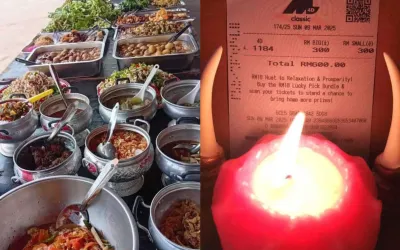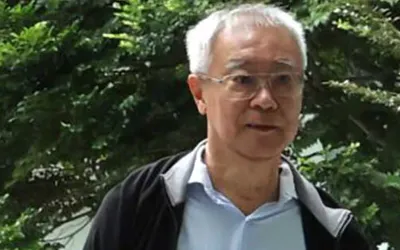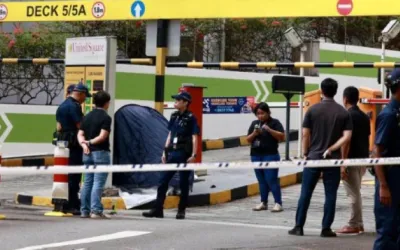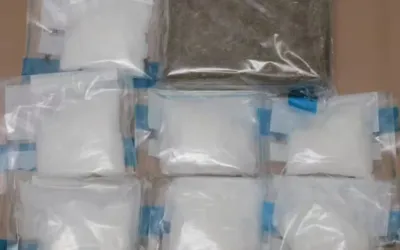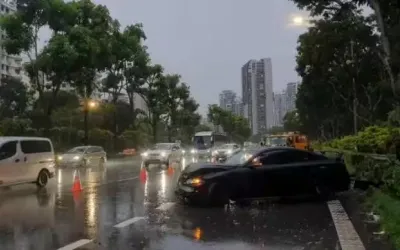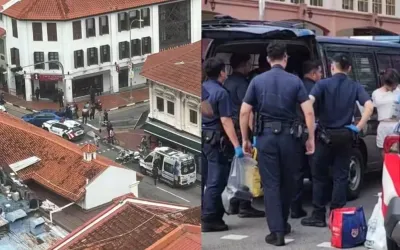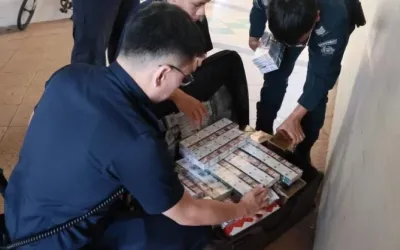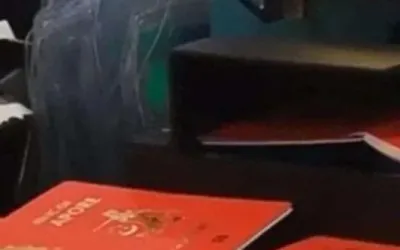2024年5月8日,新加坡內政部長尚穆根在國會書面答覆非選區議員梁文輝關於反洗錢法威懾作用的問題。
以下內容為新加坡眼根據國會英文資料翻譯整理:
梁文輝(非選區議員)先生詢問內政部長:
(a) 根據1992 年的《腐敗、販毒和其他嚴重犯罪(沒收利益)法》規定的刑罰是否足以威懾個人參與洗錢活動?
(b) 如果不能,政府是否會考慮加強量刑制度?
尚穆根(內政部長)先生:根據1992年的《腐敗、販毒和其他嚴重犯罪(沒收利益)法》(CDSA)規定,根據洗錢罪行的性質,可處以150,000 至 500,000 新元的罰款和3至10年的監禁;或兩者兼施。這與其他嚴重罪行(如欺詐和偽造)的處罰類似。這也與日本、瑞士、紐西蘭、德國和法國等其他司法管轄區的量刑制度相當。
近年來,《腐敗、販毒和其他嚴重犯罪(沒收利益)法》(CDSA)進行了兩次審查和更新。2018 年,我們加強了對法人和未提交可疑交易報告的處罰。2023 年,我們使警方能夠對錢騾採取更嚴厲的執法行動。
該法案規定了處罰範圍。法院隨後將根據案件的具體事實考慮施加適當的處罰。量刑中可能考慮的因素包括:洗錢金額;犯罪行為的持續時間;被告的罪責,包括其濫用新加坡金融體系的程度。法院還將考慮減輕處罰的因素,例如被告認罪和自願沒收被扣押的資產。
對於30億新元洗錢案,法院可能會考慮到這些因素,包括被告相對較早認罪並同意將大部分資金充公。這避免了漫長的法庭程序,從而節省了公共資源。截止目前,新加坡法院的判決與其他司法管轄區的判決相當。而且,與其他在新加坡被判犯有嚴重罪行的外國人一樣,這些罪犯在服刑期滿後將被驅逐出境,並禁止再次進入新加坡。
監禁的風險是打擊洗錢的重要威懾因素。資產沒收是我們打擊白領犯罪的另一個重要手段,因為它剝奪了犯罪分子的非法所得,從而對他們在這裡洗錢起到威懾作用。但是,最大的威懾力是被抓的可能性。
在全球範圍內,洗錢案件很難被發現。像30億新元洗錢案這樣的大案並不多見,該案是通過廣泛的情報偵查和對不同類型的信息進行艱苦拼湊的結果。這並不是因為其他司法管轄區沒有此類洗錢活動。相反,犯罪分子非常小心地隱藏他們的蹤跡。我們從外國執法同行那裡也了解到這一點。
這起30億新元的案件表明,我們的制度有能力發現可疑的個人和行為。一旦我們發現了他們,我們就有決心和能力追查罪犯。
儘管如此,我們仍在繼續收緊措施。內政部稍後將提交一項法案,以修訂《腐敗、販毒和其他嚴重犯罪(沒收利益)法》(CDSA),進一步提高執法機構追查和起訴洗錢罪犯的能力。該法案還將允許行業監管機構查閱其監管實體提交的可疑交易報告,以便更好地偵查洗錢活動。

以下是英文質詢內容:
Mr Leong Mun Wai asked the Minister for Home Affairs (a) whether sentences for offences under the Corruption, Drug Trafficking and Other Serious Crimes (Confiscation of Benefits) Act 1992 have sufficiently deterred individuals from engaging in money laundering; and (b) if not, whether the Government will consider strengthening the sentencing regime.
Mr K Shanmugam: The Corruption, Drug Trafficking and Other Serious Crimes (Confiscation of Benefits) Act 1992, or CDSA, provides for fines ranging from $150,000 to $500,000, and jail terms ranging from three years to 10 years; or both, depending on the nature of the money laundering offences. This is similar to the penalties for other serious offences, like cheating and forgery. It is also comparable with the sentencing regimes in other jurisdictions, such as Japan, Switzerland, New Zealand, Germany and France.
The CDSA was reviewed and updated twice in recent years. In 2018, we strengthened penalties against legal persons and failure to file a Suspicious Transaction Report. In 2023, we enabled Police to take firmer enforcement action against money mules.
The Act sets out the range of penalties. The Courts will then consider the appropriate penalties to be imposed, based on the specific facts of the case. Factors that may be considered in the sentencing include: the amount of money laundered; the length of the offending conduct; and the culpability of the accused person, which would include the extent of his abuse of Singapore's financial system. The Courts will also take into account mitigating factors, such as the accused person's plea of guilt and voluntary forfeiture of seized assets.
With respect to the $3 billion money laundering case, the Courts would likely have taken such factors into consideration, including the relatively early plea of guilt and agreement by the accused persons that most of the funds be forfeited to the State. This has saved public resources by avoiding long-drawn court processes. So far, the sentences meted out by the Singapore Courts have been comparable to those in other jurisdictions. And, like other foreigners convicted of serious offences in Singapore, these offenders will be deported after serving their sentence and will be banned from re-entering Singapore.
The risk of imprisonment is an important deterrent against money laundering. Asset forfeiture is another crucial tool in our arsenal against white-collar crime, as it deprives criminals of their illicit proceeds and, hence, acts as a deterrence to laundering their monies here. But the biggest deterrent of all, is the prospect of being caught.
Globally, cases of money laundering are very difficult to uncover. There are not many cases as big as the $3 billion money laundering case, which was the result of extensive intelligence probes and painstaking piecing together of disparate types of information. This is not because there are no such monies being laundered in other jurisdictions. Rather, criminals hide their tracks very carefully. We know this from our foreign law enforcement counterparts as well.
What this $3 billion case has shown is our system's ability to detect suspicious individuals and activities. And once we become aware of them, we have the resolve and capabilities to track the criminals down.
Nevertheless, we continue to tighten our measures. The Ministry of Home Affairs is tabling a Bill at a later Sitting to amend the CDSA to further enhance law enforcement agencies' abilities to pursue and prosecute offenders for money laundering offences. The Bill will also allow sectoral regulators to have access to Suspicious Transaction Reports filed by their regulated entities, to better detect money laundering activities.
HQ丨編輯
HQ丨編審
新加坡國會丨來源






